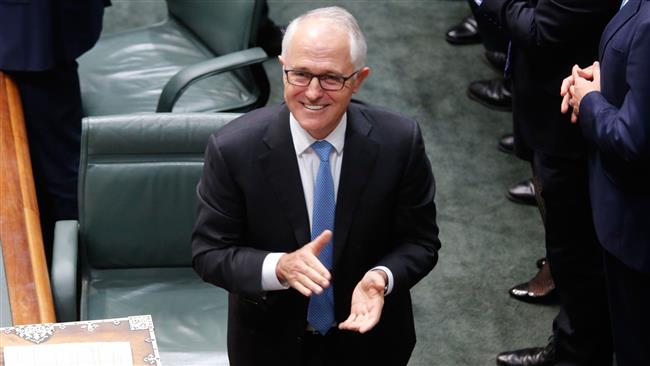Election results in Australia’s Victoria rattle coalition government
The Labor government in the Australian state of Victoria won an unexpectedly large majority in an election that analysts say is a warning to the country's ruling conservative government ahead of national polls due in six months.
Victoria is Australia's second most populous state, and the poll is seen as a barometer of voter sentiment toward the nation's conservative Liberal and National government.
The governing coalition has been a minority government since October, when they lost their one-seat majority after former prime minister Malcolm Turnbull, ousted by conservatives in a party-room coup, resigned.
In Victoria, the incumbent Labor government campaigned on big infrastructure projects, including rail, roads, and schools, while the opposition Liberal Party focused on crime, and law and order.
Labor, which went into the election with a one-seat majority in the 88-seat Victorian legislative assembly, is expected to take up to 55 seats once counting is finished, based on figures from the Victorian Electoral Commission.

With just over half the votes counted in the early hours of Sunday morning, the Victorian Electoral Commission website showed Labor leading their Liberal rivals by 42.8 percent to 30.4 percent.
By Saturday night, the tally was decisive enough for Labor Premier Daniel Andrews to declare victory, although official results will not be announced until all votes are counted.
Andrews said on Sunday morning that his victory was a result of delivering on commitments.
"Victorians would look at the results and be, well, from our point of view, be very pleasantly surprised at the magnitude," Andrews said on ABC TV's "Insiders."
University of Sydney emeritus politics professor Rodney Tiffen said the loss would be a warning to the national Liberal Party, and said it could exacerbate the ideological split in the Liberal Party over social issues and addressing climate change.
"I would think it's a very bad omen for the Liberals federally," he told Reuters by telephone. "It continues a sense that they're on a losing streak."
Australia's most populous state of New South Wales holds an election on March 23 next year, and a Federal election is due by mid-May.
(Source: Reuters)
VIDEO | Yemenis praise the military for its successful operations against Israel
VIDEO | Israel continues to bomb Gaza homes
VIDEO | An insider's view of the country: Meybod City in Yazd
‘All wars have rules. All of those rules have been broken’ by Israel
VIDEO | Report flags India’s violation of rights of Rohingya detainees
Turkey's foreign minister meets Syria's de facto leader in Damascus
VIDEO | US Syria plots
'Next to impossible' to rescue patients from Gaza's Kamal Adwan Hospital: Director












 This makes it easy to access the Press TV website
This makes it easy to access the Press TV website